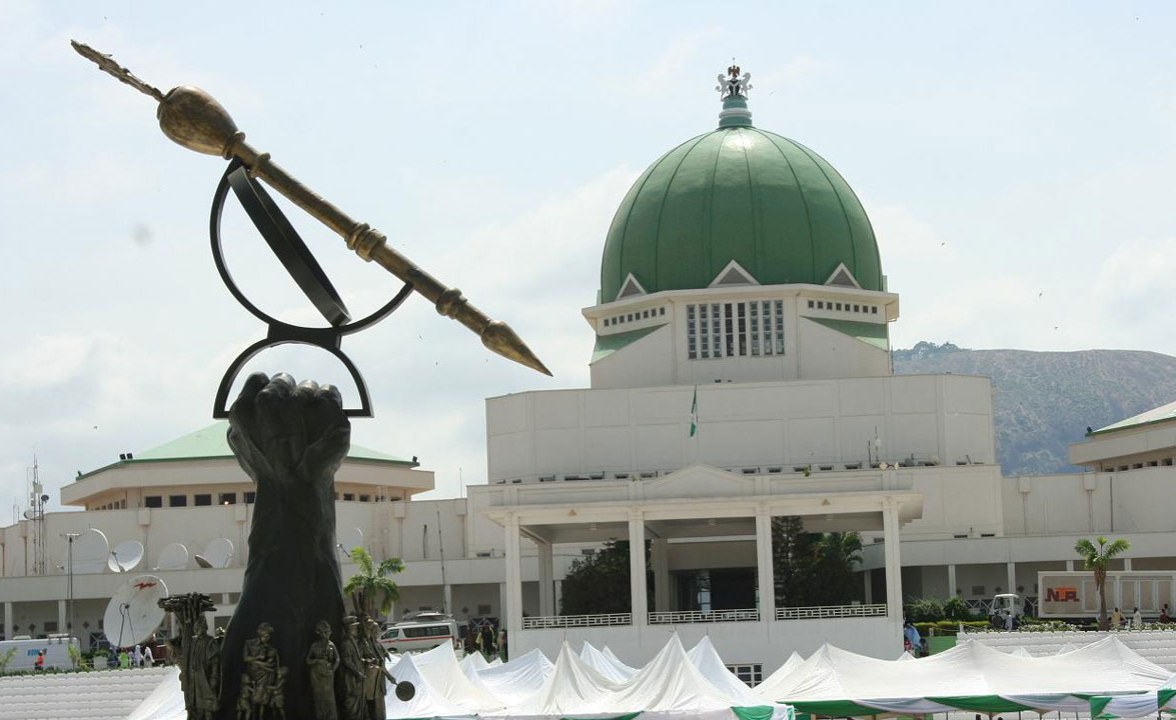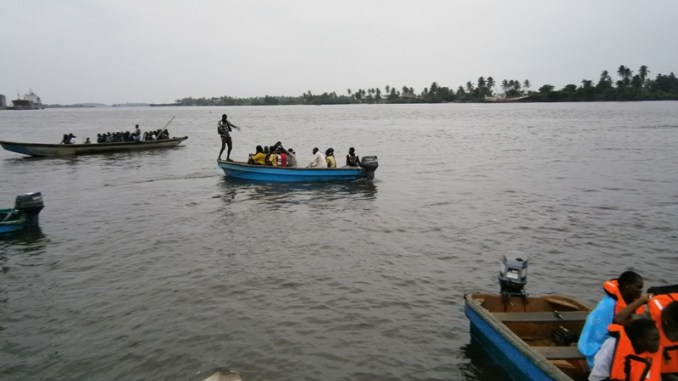Tag: water bill
-

Insecurity, Water Bill, PIB, deregulation, restructuring of Nigeria may shape NASS agenda as it reconvenes today
By Emman OvuakporieAfter a two month annual recess, the National Assembly may urgently look into pressing national issues such as the state of insecurity in the North East, the controversial Water Resources Bill, Petroleum Industry Bill, PIB and other national issues.Thenewsguru.com, TNG in this brief analysis x-rays the various issues that may shape NASS agenda as Nigerians grapple under the weight of economic hardship imposed by the FG.During its annual recess, so many ugly developments had cropped up that urgently need the attention of Nigerian lawmakers.Still basking in the image of a rubber stamp legislature designed as anything flies, provided is from Mr President, the upper legislative Chambers may need to firm up as the issues at stake could further throw Nigeria 50years behind.Insecurity in the North East took a dangerous dimensions last weekend as within 24hours, Borno Governor, Babagana Zulum’s convoy was attacked twice by Boko Haram insurgents.The third attack within a space of three months that the number one citizen and Chief Security Officer of Borno State escaped death by the whiskers.This calls for a lot of rethinking about insecurity across Nigeria as some roads like Kaduna-Abuja road and Lokoja-Abuja express are now headquarters of kidnappers.Nobody is spared because the rich also cry as they must ply the roads to connect their homes and constituencies as the case maybe.Disappointed by the deliberate refusal of the Federal Government to sack the longest serving Service chiefs in Nigeria, the North East elders last week for the umpteenth time demanded for their sack.This as usual will get no response from the Muhamnadu Buhari led administration that believes loyalty of uniformed men must be retained till 2023.Water Bill:The controversial Water Bill that was miraculously passed through the backyard in the House of Representatives is one legislative piece that must be properly x-rayed by the Senate.The Bill which contravenes the Land Use Act is one piece of legislation that will either properly wear the ninth Assembly the full garb of a rubber stamp legislature or rubbish all the good things this Assembly stood for.Opposition that could even push for it to be killed in the Green Chamber is still lumbering since the inception of the ninth House.Deregulation:The Nigeria Labour Congress, NLC did not disappoint Nigerians as it was expected that as usual nothing meaningful could have been achieved if the planned strike to force government to reverse price of fuel that was jerked up from N145 to N162 had commenced.Market forces will now determine the prices of fuel at the detriment of Nigerians who predominantly live below $1 per day.This singular increase has made virtually every consumable item double in prices since it was slammed on Nigerians.PIB:The Methuselah Bill in Nigeria, unarguably the oldest bill in this clime, finally, will be passed by this ninth Assembly after its snail like speed of over 20years.This ninth legislative body is capable of performing miracles and both leaders of Assembly have repeatedly vowed to speedily pass it when crude oil is fast losing its relevance in the world order.Nigerians are patiently waiting for the miraculous passage.Restructuring of Nigeria:Again, the call to restructure Nigeria has mounted the centre stage. It’s no longer a jocular issue.A group in the South West has vowed to embark on a peaceful rally on October First, the day the Union Jack was lowered.Questions are being asked about the validity of 1914 Amalgamation of Nigeria.At sixtty, definitely Nigeria is no longer a beautiful bride and the question of the marriage that made Nigeria possible remains one big question that’s begging for attention.The question on the lips of many Nigerians is whether this ninth Assembly can midwife Nigeria via its many lackluster constitutional reviews which is every four years sacrificial offering? -

The Water Resources Bill and executive terror – Enyeribe Anyanwu
By Enyeribe Anyanwu
The fear of the controversial Water Resources Bill hit me recently with the impact of an electric shock. This was after reading the bill and suddenly realizing what the bill portends, and the extent the present government in the country is determined to go in pursuit of some deeply entrenched interests.
My trepidation emanated from the realization that with the bill becoming law, the beautiful springs and streams in my village, such as ‘Nnenke’, ‘Worandu’, ‘Iyi Ehi’ and others would become the property of the federal government, to which my people may not have easy access again. Elsewhere in Imo State, small rivers like ‘Otamiri’, ‘Njaba’, ‘Nworie’ and several others will equally belong to every Nigerian, not to talk of the big Imo River which the promoters of the bill and their supporters will claim is a distributary of the River Niger which flows all the way from Kebbi State.
I shuddered at the prospect of this stratagem becoming law, meaning that the Fulani cattle herdsman from the North or Niger Republic will now lay equal claim to those rivers and streams, or even more than my people.
Section 2(1) of the Bill, says: “All surface water and ground water wherever it occurs, is a resource common to all people.” With this clear declaration, one can see that my fear is quite palpable.
My fear is further heightened by Section 13 which states: “In implementing the principles under subsection (2) of this section, the institutions established under this Act shall promote integrated water resources management and the coordinated management of land and water resources, surface water and ground water resources, river basins and adjacent marine and coastal environment and upstream and downstream interests.” This means that some federal government institutions led by some aliens will be set up to decide how these water resources will be used.
What all this means is with this Bill, the federal government is seeking to give itself the legal teeth to control all sources of water in the country. This implies that with the law the federal government can permit anybody or group from any part of the country to go and possess any water resource anywhere without the consent of the local communities. In other words, the federal government can take over any water resource and hand over to any group of people using its federal might. This is really terrifying.
This is all the more so given the audacious manner Fulani herdsmen have been terrorizing the Middle Belt, South East, South-South and South West without any challenge from the federal government and the law enforcement agents. With this bill becoming law, the herdsmen under “federal” mandate, can take over water resources and lands adjoining the springs, streams, rivers, lakes, lagoons and coastal areas which have been the mainstay of their local communities right from primordial times.
But how can this happen without resistance? Can this happen without bloody clashes? Anyone who is conversant with Chinua Achebe’s ‘Things Fall Apart’ will understand the reaction of an average Igbo man to such dastardly incursion. According to the hero of the novel, Obi Okonkwo, a man does not sit down watching a man who has come to defecate inside his ‘obi’. That the government is trying to make a law which will make bloody clashes inevitable beats my imagination, a law that will exacerbate the so-called farmers/herdsmen clashes.
At a time an overwhelming majority of Nigerians are calling for restructuring or true federalism, the federal government is trying to the federating units of the little powers or resources they have. In this case, the FG is striving to appropriate the constitutional powers of state governors to hold land resources in trust for their people.
Sincerely, one finds it difficult to understand how a law like this can make for the unity of the country. How the government can deprive poor villagers of their main sources of livelihood for the use of others, and expect them to understand. The promoters of this predatory and provocative law really know what they are doing; even though they may be ready to swear that they are working for the unity and stability of the country. Some of them have even boasted that the coming of the law into existence is a done deal.
From all indications, the Water Resources Bill is the twin brother of the stillborn RUGA Policy. Both of them come from the same pernicious womb. Having failed with RUGA, the promoters have come up with another scheme, and are not ready to fail again; hence they want to shove it down the throat of Nigerians. It’s not easy to forget that some federal government officials have often pointed at desertification and drying of rivers, lakes and water resources in the north as being responsible for the farmers/herdsmen clashes. Thus one can safely say that what the government is trying to do is to take over people’s water resources, especially from the middle belt and southern part of the country and make them available to these herdsmen whose incursions into these areas have often met with resistance from the local communities. This is what the bill means by equitable management of water resources.
Truly, not all Nigerians are fooled or can be cowed to succumb to this bill. To all intents and purposes, the water resources bill is nothing but the reincarnation of the defeated RUGA policy which was deceptively packaged to grab people’s lands for cattle rearers to set up grazing reserves or cattle colonies. What RUGA could not achieve, the Water Resources Bill is being pleasantly wrapped to achieve it. A strong evidence is that the bill also makes certain portions of lands adjoining the water resources the property of the federal government. Who is fooling who?
With the way things have been going, Nigerians cannot but salute the 8th national assembly. Sometimes, it is good for the executive and the legislature to be at loggerheads –healthy loggerheads. This might be what the separation of powers is all about. This way, the disagreement between the executive and the legislature will be to the benefit of the people. Where there is ‘cooperation’ or the legislature is a rubber stamp, the people are bound to get a raw deal. Many obnoxious and anti-people bills have been, and are still being entertained by the present legislature.
One can vividly remember how the 8th national assembly roundly rejected the bill, and threw it out of the window after the first reading. The Senate led by Bukola Saraki saw the executive bill as obnoxious and objectionable. But this time, with a docile or ‘friendly’ legislature, the government has represented the bill, and the promoters are saying it is a done deal. They are desperate, and are violating due process in a bid to make sure the bill is pushed down everybody’s throat. They talk down on opponents of the bill, calling them ill-informed.
But truth be told, that this government is still insisting on this bill speaks volumes concerning its desire to favour a section of the country under the guise of integrated water resources management and “equitable development and management of ground water resources”. But so long as the creator of these resources is still on the throne, my fear will never come to pass.